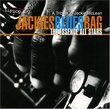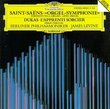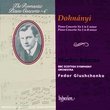| All Artists: Gustav Mahler, Giuseppe Sinopoli (Conductor), Philharmonia Chorus & Orchestra, Angela Maria Blasi & Sumi Jo (Sopranos) Cheryl Studer, Waltraud Meier & Kazuko Nagai (Contralto, Thomas Allen (Baritone) & Hans Sotin (Bass) Keith Lewis (Tenor), Cheryl Studer (Soprano), Cheryl Struder Title: Gustav Mahler: Symphony No. 8 / Sinopoli / Philharmonia Orchestra Members Wishing: 0 Total Copies: 0 Label: Polygram Records Release Date: 4/13/1993 Genre: Classical Style: Symphonies Number of Discs: 2 SwapaCD Credits: 2 UPC: 028943543323 |
Search - Gustav Mahler, Giuseppe Sinopoli (Conductor), Philharmonia Chorus & Orchestra :: Gustav Mahler: Symphony No. 8 / Sinopoli / Philharmonia Orchestra
 | Gustav Mahler, Giuseppe Sinopoli (Conductor), Philharmonia Chorus & Orchestra Gustav Mahler: Symphony No. 8 / Sinopoli / Philharmonia Orchestra Genre: Classical
|
CD DetailsSimilar CDs
Similarly Requested CDs |
CD ReviewsMagnificent Good Stuff | 02/19/2004 (5 out of 5 stars) "This is a performance of almost unbearable power.There is no shortage of excellent performances of Mahler's Eighth Symphony. Standouts include the legendary recordings by Solti and Bernstein.However, this is something altogether special. Giuseppe Sinopoli was a conductor adored by many and condemned by some. He was independent in his views and interpretations. One could always expect the unexpected from SinopoliFrankly, I've not been a huge fan of his, and I can't claim to know his other Mahler performances at all. I bought this recording on the recommendation of someone whose opinions I respect.I think it is safe to go out on a limb here and state, without equivocation, that this is the most astounding performance of the Mahler 8th Symphony I have heard in thirty years!The glorious Philharmonia Orchestra plays as if possessed by some greater force. The choirs are note perfect and impassioned.It would be unfair to single out any of the soloists, so good is their work here. However, I would point to soprano Angela Maria Blasi for her soaring vocalism as the Una poenitentium and the spectacular tenor Keith Lewis, both thrilling and fearless, as Doctor Marianus.Sinopoli, for the most part, adopts a very broad approach to Mahler's monumental score. However, he never loses grasp over detail. He gives his singers all the room they need, but never indulges them. He is firmly in control at all times, but never allows himself to become the vessel. Here, Mahler is the vessel, and it is Mahler we are allowed to hear. The recorded sound is without fault.Here then, is a performance I feel is unique in the Mahler lexicon. A recording at the service of the composer. A performance which acknowledges there is a genius in the room, and that his name is Gustav Mahler.Do yourself a favor. Buy this recording. You will never be sorry." POEMS PRAYERS AND PAGEANTS DAVID BRYSON | Glossop Derbyshire England | 04/06/2004 (5 out of 5 stars) "We are not told exactly how many performers were here for this `symphony of a thousand', but there were obviously quite a few and my first pleasure in reviewing this pair of discs is to compliment the recording staff on how well they have handled their part. Their work is consistent from beginning to end and it shows at its very best in the final Chorus Mysticus, building up from the faintest pianissimo to a really colossal sign-off without loss of tone at either extreme. The performance is a model of consistency too, and consistency at the highest level. Hans Soltin as the Pater Profundus does not have a voice to equal the glorious tone of Tom Allen as the Pater Ecstaticus, but what is more important is that their voices are well contrasted. Also mentioned in despatches should be Cheryl Studer as the Magna Peccatrix, Angela Maria Blasi as Una Poenitentium and Keith Lewis in beautiful voice as Doctor Marianus. The Southend Boys' Choir acquit themselves very well indeed, and the Philharmonia chorus and orchestra cover themselves with glory. Above all, step forward Sinopoli. What a truly great conductor he can be. He launches the great apocalyptic piece with overwhelming conviction and power, the drive and exultation of the Veni Creator carries all before it, and he negotiates the tones of rapture, awe and contemplation in the second part with faultless instinct and skill.For me Mahler's 8th is not some balanced game of two halves, to avail myself of the sportswriters' cliché. The first part is less than half the length of the second, and I hear it as a prelude to it. Its poem is an uncomplicated invocation of and paean of praise to the holy spirit, exalted in sentiment but simple too, indeed basically saying the same thing several times over. The divine inspiration, for me, is being called down to help us better understand the sublime pageant of redemption through divine love that makes up most of the work. The work is almost unique among Mahler's compositions in having no dark shadows, only light of different intensities and tones. There is no struggle or doubt, all that being something of the past when the great prayer starts. When it finishes, the composer guides us through Goethe's great vision as the various types of sinful humanity extol the divine mercy that has brought them to paradise itself, and the voices are finally silent as pure voiceless instrumental music sets the seal on the whole sublime tableau.The production is in general very good, but not as good as it might have been. Texts of the Latin and German are provided with English translations, and that meets the basic requirement. There is a lengthy and high-flown liner note on the symphony, and it may be that in time my first impression that it is mainly hot air will change. My Latin is better than my German, but I very much hope that the translators' German is better than their Latin, because the translation of the Veni Creator is slipshod and in two places downright wrong. Happily this is not a work where the fine detail of the text is all that important, but a listener wishing to understand what he or she is listening to ought to be aware that the two lines from `infirma' to `perpeti' actually mean `Stiffening what in our bodies is weak to be steadfast through virtue'. Substitute commas for full stops after `unctio' and `perpeti', and in the English after `spirit', and it will make sense. In addition there is some pointless fussing, indicated by the digit 1, over alleged changes or additions to the text. In fact all these point up are some perfectly ordinary word-repetitions. Anyone trying to annotate Handel's far more elaborate word-setting in this way would soon get into a fine old tangle. Where the text here actually differs from the liturgy, twice in changing the word-order and twice the words themselves, the editor never lets on. It should probably be noted also that track 15 starts with the entry of the Mater Gloriosa, later than the text states.As a filler there is another fine performance of the adagio from the unfinished 10th symphony. On its own it is longer than any symphony by Haydn, and this time I compliment the production on their sensitivity in placing it on the first track." The best of Sinopoli - and Mahler Ralph Moore | Bishop's Stortford, UK | 06/26/2009 (5 out of 5 stars) "David Bryson has already contributed a fine and full review of this account of Mahler's so-called "Symphony of a Thousand", so I need only to endorse his sound judgement. I say "so-called", but Mahler did indeed have forces numbering well over that number in the premiere, which he conducted. I have read criticism of the paucity of Sinopoli's forces but I cannot say that I register any sense of their being under-powered here: the climaxes to both movements are overwhelming and spectacularly recorded. This is by all accounts the best of Sinopoli's Mahler cycle, worthy to sit alongside versions by Solti, Bernstein and Tennstedt. Orchestra, choir and soloists seem inspired by their conductor to make this a thrilling spiritual experience - and one which sucessfully unites the two parts by vitue of their common, shared sense of ecstasy. Keith Lewis has a light but penetrating tenor, Sotin and Tom Allen are assertive and authoritative, and all the ladies' voices are totally up to the job. I love this recording and would use it as a first port of call to illustrate the special quality Sinopoli can sometimes (not always) bring to familiar pieces; this interpretation breathes sincerity and inspiration.
(I should add only that there is no Adagio from the 10th on this discontinued edition; that is available on the newer DG twofer.)" |

 Track Listings (8) - Disc #1
Track Listings (8) - Disc #1










